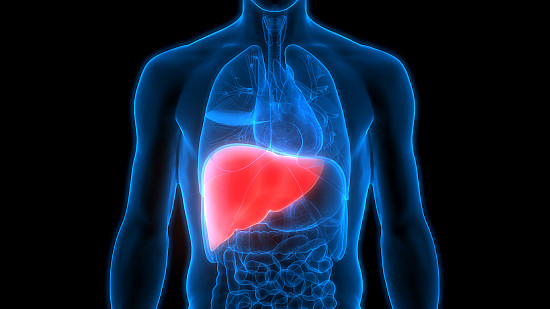Care-O-Pet, Carprofen
- I. Introduction to Care-O-Pet Carprofen
- II. Composition of Care-O-Pet
- III. Uses of Carprofen in Veterinary Practice
- IV. Expanding on Off-Label Uses of Carprofen
- V. Mechanism of Action: How Carprofen Works
- VI. Dosage and Administration Guidelines
- VII. Storage Requirements for Care-O-Pet
- VIII. Drug Interactions with Carprofen
- IX. Side Effects of Carprofen in Dogs
- X. Important Precautions When Using Carprofen
- XI. Contraindications for Using Carprofen
- XII. Special Considerations in Diverse Populations
- XIII. Guidelines for Handling Overdosage
- XIV. Precautions for Handling and Administering Care-O-Pet
I. Introduction to Care-O-Pet Carprofen
Overview of Carprofen
Carprofen, sold as Care O Pet, is a nonsteroidal anti-inflammatory drug (NSAID) widely used in veterinary practice. Its main purpose is to reduce inflammation and relieve pain in dogs with osteoarthritis or recovering from orthopedic procedures.
Importance in Veterinary Medicine
Carprofen is crucial for improving the well being of dogs by addressing pain and inflammation. Its application in surgery recovery and long term health issues highlights its importance, in treatment plans establishing it as an essential component of contemporary veterinary care.
II. Composition of Care-O-Pet
Active Ingredients
The main ingredient in Care O Pet is carprofen, which works by blocking the cyclooxygenase (COX) enzymes that play a role in inflammation in dogs.

Inactive Ingredients and Their Roles
III. Uses of Carprofen in Veterinary Practice
Primary Indications for Use
Carprofen is mainly used to:
- Help with long-term issues like osteoarthritis.
- Control and Reduce inflammation after surgery.
Benefits for Canine Joint Health
IV. Expanding on Off-Label Uses of Carprofen
Common Off-Label Conditions Treated
Veterinarians commonly recommend Carprofen for ailments such as soft tissue injuries and various inflammatory conditions that are not explicitly mentioned on the label.
Case Studies and Veterinarian Insights
Veterinary case studies showcase how Carprofen can effectively handle a range of conditions with veterinarians emphasizing its safety and efficacy when used responsibly.
V. Mechanism of Action: How Carprofen Works
Pharmacodynamics
Carprofen focuses on blocking COX enzymes that play a key role in the production of inflammatory prostaglandins leading to a decrease, in both inflammation and pain.
Comparisons with Other NSAIDs
Carprofen, although it serves a purpose as other NSAIDs is commonly chosen due to its lower likelihood of causing gastrointestinal issues, which makes it a safer option, for extended canine use.
VI. Dosage and Administration Guidelines
Dosage Variations by Weight and Condition
The amount of Carprofen given is carefully determined according to the dog's weight. How serious the condition is, to make sure it works well and reduces any potential risks.

Routes of Administration and Frequency
VII. Storage Requirements for Care-O-Pet
Optimal Storage Conditions
For results store Care O Pet in a cool dry place at room temperature and away, from direct sunlight.
Shelf Life and Stability
Carprofen usually remains effective for two years starting from the manufacturing date as long as it is stored correctly.
VIII. Drug Interactions with Carprofen
Common Concomitant Medications to Avoid
Carprofen should not be taken at the time as other NSAIDs or corticosteroids because this mix can increase the chances of developing stomach ulcers and kidney problems. It's essential to be cautious when using medications, like Furosemide and certain antibiotics to avoid kidney issues.
Managing Multi-Drug Regimens
When using Carprofen in combination with medications it is crucial for veterinarians to closely monitor and make necessary adjustments. They need to weigh the benefits of treatment against any risks, modify doses as needed to prevent interactions, and prioritize the well-being and comfort of the animal.
IX. Side Effects of Carprofen in Dogs
Common Side Effects and Management
- Gastrointestinal issues like vomiting and diarrhea are common. It can usually be controlled through changes in diet and sticking to the right medication timings.
- It's important to keep an eye out for any increases in liver enzymes, so regular blood tests are needed to catch and treat any issues.

Serious Adverse Reactions
Although uncommon, severe side effects, like stomach bleeding, liver issues, and intense allergic responses, can sometimes happen. It's essential for veterinarians to act promptly to address these issues properly.
X. Important Precautions When Using Carprofen
Before Starting Treatment
Before starting treatment, with Carprofen it is advisable to have your pet thoroughly examined by a veterinarian and to conduct blood tests to determine if the medication is suitable focusing on assessing liver and kidney function.
Monitoring Requirements
Regularly checking on your dogs condition while they are on Carprofen is crucial. It's important to schedule follow up visits to see how your dog is responding to the treatment and make any needed changes to their medication, for the results.
XI. Contraindications for Using Carprofen
Health Conditions and Risk Factors
Carprofen should not be given to dogs, with existing liver issues, kidney problems or a past of stomach ulcers as it could worsen these conditions.
Interaction-Based Contraindications
Interactions with medications, like other NSAIDs, corticosteroids, and specific diuretics, can lead to contraindications, increasing the risk of renal toxicity.
XII. Special Considerations in Diverse Populations
Administration to Elderly Animals
Older dogs might need amounts of Carprofen because their liver and kidney functions decline with age. It's important to have check ups to make sure the medication is given safely.
Administration to Pregnant Women and Nursing Mothers
The safety of Carprofen, for nursing dogs has not been determined. Veterinarians should assess the risks and benefits before prescribing it in these cases.
Administration to Children (Young Animals)
Younger dogs are at a risk of experiencing the adverse effects of Carprofen so it's important to administer doses carefully and keep a close eye, on them to guarantee their well being.
XIII. Guidelines for Handling Overdosage
Symptoms of Overdose
Signs of taking too much Carprofen may lead to serious stomach problems, kidney issues, and depression of the central nervous system. It's important to identify these signs for proper treatment.
Immediate Actions and Antidote Information
In case of an overdose it's crucial to seek help right away. Treatment usually includes making the vomit, cleaning out the stomach, and providing supportive care. However, there isn't an antidote for Carprofen poisoning.
XIV. Precautions for Handling and Administering Care-O-Pet
Handling Instructions for Caregivers
Caregivers need to be cautious when dealing with Carprofen, making sure to avoid skin and eye contact and thoroughly washing their hands after giving it.
Disposal and Safety Measures
Make sure to dispose of any unused or expired Carprofen properly to avoid ingestion by unauthorized individuals or animals. It's an idea to seek advice, from a pharmacist or veterinarian on the best ways to safely get rid of it.















